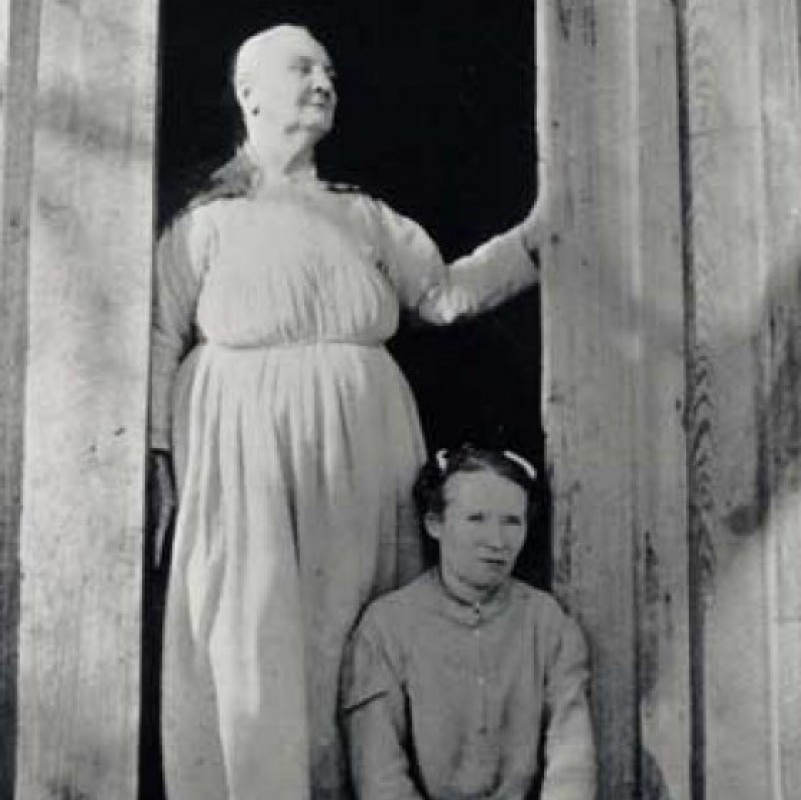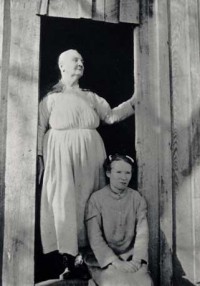'A Tune Caused the Valley to Ring': Remembering Arkansas Folksongs, Musicians, and Collectors
Special Collections showcases the musicians and folklorists who collected and created the folk music of Arkansas. Through photographs, song transcriptions, rare books, and records, the exhibit offers a sample of the rich traditions of folk music on the University of Arkansas campus, throughout the Ozarks region and work of noted scholars, and now in the digital age through the opening of the Ozark Folksong Collection.

The Arkansas Ozarks are musical, from the sound of the wind whistling through the hollers and the rushing waters to the very real music rolling down from hilltop homes and rising up from the villages in the valleys. Although complex and deeply textured, Arkansas's musicality is intertwined with the folklore and folk arts that evolved from the shared traditions of generations of settlers in unique regions such as the Ozarks. With songs that survived journeys across the Atlantic, hard times and battles fought, and exoduses from crumbling mountain homes and weakening farmland back east to find more freedom and prosperity, Arkansans preserved old stories and crafted new ones through their music. Some songs were rooted in religious praise and Christian traditions. Others set to tune tales of crimes of passion, great tragedies, or debauchery. Some were intended to communicate important moral lessons while others were sung just to provide a little humorous diversion. The exhibit “A Tune Caused the Valley to Ring” celebrates the folk musicians and Arkansas's enduring folk music tradition through materials from Special Collections. From folk music in university life, to the development of folk festivals and the folklore collecting movement represented at the UofA by Mary Celestia Parler, to the emergence of famous "folkies" from the region and the business of selling folk music and the ongoing role of folk traditions in popular culture, the Ozarks have seen folk traditions both evolve and endure through generations.
Curated by Joshua Youngblood, the exhibit explores the connections between folklore and the work of scholars and collectors such as Parler at the University and the surrounding area. The exhibit title comes from a line in the song “One Morning in May” collected by famed Ozarks writer and folklorist Vance Randolph in Ozark Folksongs (1946). The people whose stories and traditions survive through Arkansas folk music, discoverable through collections such as the Arkansas Folklore Collection in Special Collections and at other colleges and research libraries, helped lay the framework of Arkansas and American culture.
Their music echoes through the ages carrying pieces of all of our stories. The exhibit inclides a banjolin from a provate collection alongside images of Arkansas folk musicians through the decades playing the Arkansas's musical styles have often been associated with certain instruments including fiddles, banjoes, homemade stringed instruments like mouth harps, and customized guitars. Images and artifacts included here show the variety of instrumentation and the prowess Ozark musicians. From University students and professors, to farmers and rural craftspeople with family music traditions, to professional musicians and promoters of folk music for commercial gain and worldwide exposure, the folk music of the Arkansas Ozarks continues to ring forth and share its stories.
Find more information at https://librariesblog.uark.edu/folksongs-special-collections-and-the-connections-between-resources/.
(Click thumbnail image to enlarge.)

